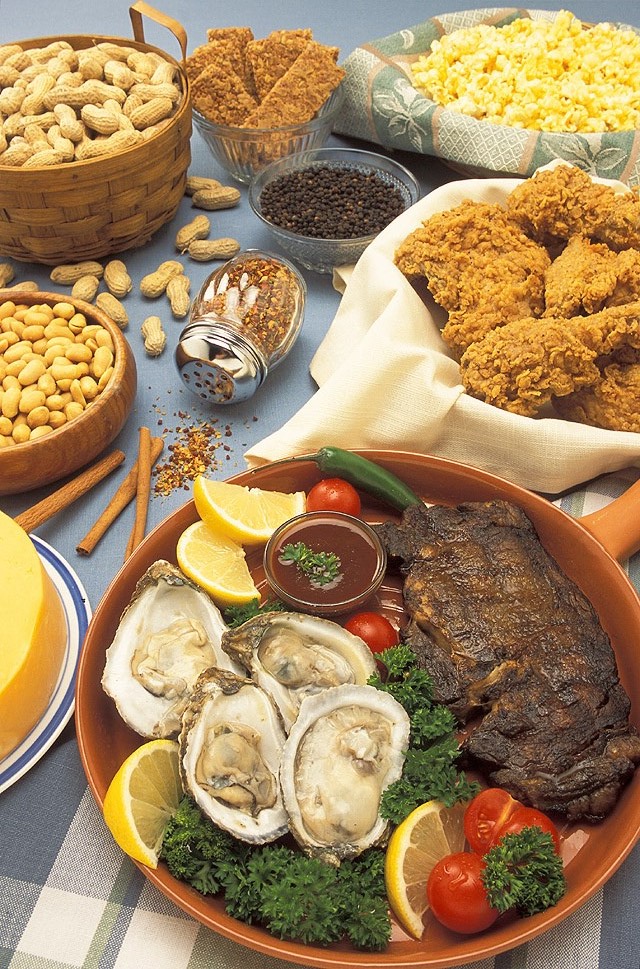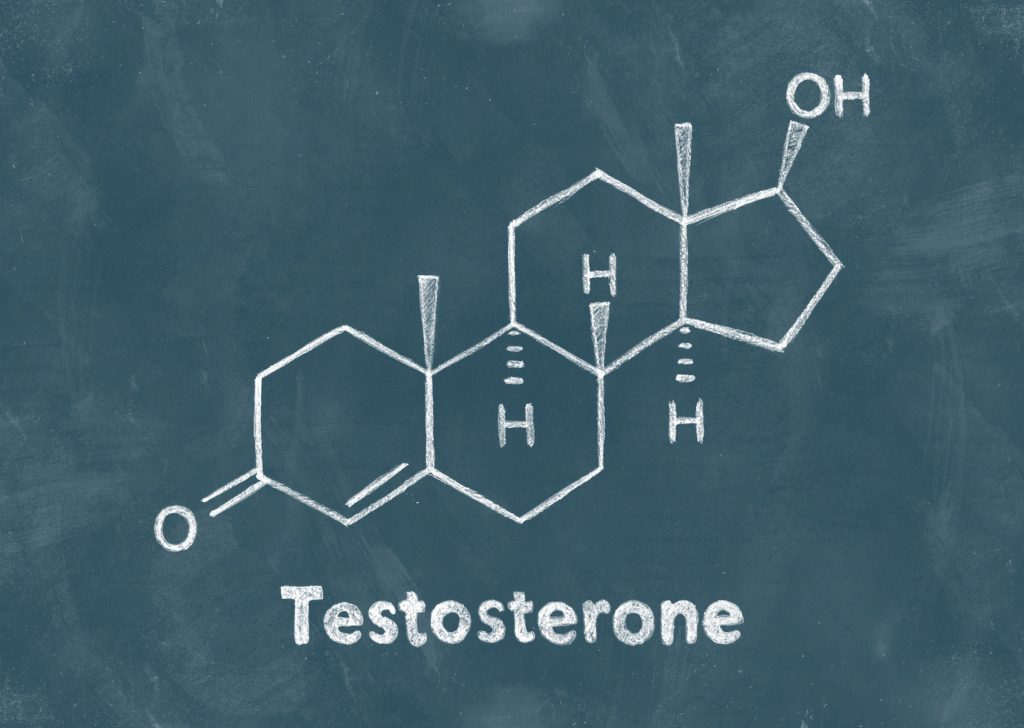T-boosters use ingredients such as herbs and vitamins to support optimal testosterone levels and help men conquer low-T symptoms that include fatigue, lost sex drive, weight gain, and brain fog. Although they can be made from a single ingredient, multi-ingredient T-booster complexes are far more popular.
In complexes, some ingredients directly boost T, while others may work indirectly or address other aspects of men’s vitality. Complexes can be a cost-effective way to get several T-boosters and related compounds in one supplement.
But the best formulas – and this might be the real secret – are made to be synergistic. This means ingredients’ individual effects are magnified by others in the formula, making the compounds more powerful than when taken alone.
On this page, we’re going to discuss the most popular compounds used to boost testosterone.
Ashwagandha
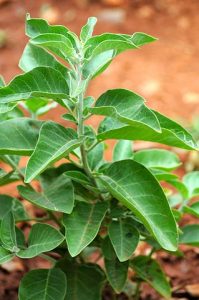
As a nootropic, Ashwagandha’s anti-stress benefits help enhance mind-body performance, but for men in particular, Ashwagandha can improve markers of strength, sex, and sperm quality–all of which are associated with healthy T levels.
Evidence of Ashwagandha’s T-boosting abilities can be traced to a study on KSM-66®, a standardized brand of the herb, which was shown to boost T by at least 17%.
Astragalus
As one of the core herbs in traditional Chinese medicine, Astragalus has been included in a number of ancient herbal remedies & health tonics believed to add life to your years, rather than years to your life. Astragalus’ anti-inflammatory and cardioprotective effects may provide some truth to this claim, but most of its benefits seem to end there.
As a T-booster Astragalus is overrated and under-researched. On the whole, it seems to do very little in the way of testosterone, with only one rat study suggesting it helps protect sperm quality–which may or may not be related to T.
As such, we can only recommend Astragalus for general health, but not for boosting testosterone.
Beta Sitosterol
Beta Sitosterol is a phytosterol (plant steroid) found in popular T-booster ingredients such as Stinging Nettle & Saw Palmetto–two herbs believed to increase T by inhibiting the conversion of T to dihydrotestosterone (DHT). And this inhibition seems to be linked to Beta Sitosterol, making it a fairly controversial compound for two reasons:
- Although not nearly as well known as T, DHT is also an important androgen
- Beta Sitosterol’s inhibition of DHT conversion comes second to its role as a steroid precursor, which is a hot topic issue in competitive sport
Leaving DHT alone seems like a good idea for most men, considering the hormone plays an active role in sexual health & other various bodily functions (e.g. the ability to grow facial hair).
However, Beta Sitosterol does have clinical potential for older men who are at risk of excess DHT levels, which increase the chance of prostate issues. Otherwise, take caution with Beta Sitosterol supplementation.
Boron – Editor’s Choice
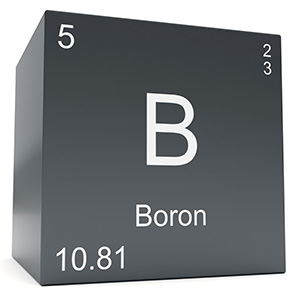 Boron is far from boring, working as a major, multi-tasking mineral that seems to boost testosterone by:
Boron is far from boring, working as a major, multi-tasking mineral that seems to boost testosterone by:
- Optimizing Magnesium & Vitamin D, two potential T-boosters
- Inhibiting T-killers estradiol & sex hormone binding globulin (SHBG)
- Increasing “active” T and DHT levels
Strictly in terms of increasing T, research suggests that 10 mg Boron daily can significantly raise serum T levels after only one week of supplementation. And this is ignoring its benefits for bone health, arthritis, muscle mass, strength, and more.
Nearly everyone–men, women, athletes, the elderly–can benefit from Boron supplementation. It’s inhibition of harmful estrogens not only aids muscle & strength gains, but boosts the healthy of mature men and post-menopausal women.
Look for Boron Amino Acid Chelate, the best, most bioavailable form of Boron–supplying at least 10 mg of “active” Boron per 100 mg. More on Boron.
Bulbine Natalensis
Traditionally used as an aphrodisiac by the Zulu tribes of Africa, Bulbine Natalensis is a T-boosting herb that’s been making waves in the bodybuilding community for its research-backed (albeit animal research) androgenic & anabolic effects.
The catch: Bulbine may cause liver damage, warranting caution from researchers.
Considering its long use in tribal medicines, we see potential for this T-booster to be used safely and effectively–but, for now, avoid it. There are too many question marks underlying Bulbine that need to be further explored before adding it to supplement stacks. More on Bulbine.
Citrulline Malate
Citrulline Malate is a formulation of the amino acid citrulline which is similar to L-arginine, and in fact converts into arginine when ingested. Because citrulline raises the body’s arginine levels better than arginine itself, it has recently overtaken it as a pre-workout supplement and blood flow booster.
Some have suggested that arginine could increase testosterone delivery by increasing blood flow, particularly during exercise, but this mechanism remains untested. So far the only relevant research evidence suggests that arginine might play a small role in T-synthesis, but this has yet to be verified in human trials.
Cordyceps
As opposed to the mushroom fungi that most people are comfortable consuming, Cordyceps sinensis (CS) is a sac-fungus that parasitizes moth & butterfly larvae. Due to its neural control of insects, Cordyceps is believed by some to be a lurking agent of the apocalypse…
We believe that it increases T.
Despite its bizarre effects in insects, Cordyceps extract has been shown to optimize T:Estrogen levels in a small study on male cyclists and actually increased total T-levels in a mouse study. Although this doesn’t guarantee T-boosts, it shows a lot of promise for male health. More on Cordyceps.
Creatine
You’ll be surprised to find that everyone’s favorite pre-workout supplement might also be capable of boosting testosterone. However, creatine is somewhat unique as a T-booster because it only seems to increase testosterone when paired with resistance training.
Researchers are not entirely sure of how it works but one possibility is that since creatine allows you to exercise harder and longer, it might increase the body’s hormonal response to exercise. More on Creatine.
D-Aspartic-Acid (DAA) – Editor’s Choice
![By SubDural12 (Own work) [Public domain], via Wikimedia Commons](https://supplementsinreview.com/wp-content/uploads/2016/07/1200px-NMDA_spacefill-300x222.png)
- Trigger increased Luteinizing Hormone (LH) secretion
- Signal T raw material delivery
- Boost Human Growth Hormone (HGH) synthesis
The result: Major boosts in total T-levels (one study showing 42% increase in only 12 days) and a heightened anabolic muscle metabolism.
DAA makes for a rare type of T-boosting by acting directly on the testes–evidenced by its high concentrations in testicular tissue. However, some research shows boosts on all sex hormones (including estrogen), so it’s best to stack this compound with anti-E support (e.g. Luteolin, Stinging Nettle, Boron), as well.
For best results, look for the stronger D-AA-CC form, which is easier to absorb than plain DAA. And don’t forget to cycle, because this is a potent T-booster that works. More on D-Aspartic Acid.
Damiana
Turnera diffusa, commonly known as Damiana Leaf, is a shrub native to the Americas that has a long history of use as an aphrodisiac for both men and women. In terms of T-boosting its roles are rather complicated, considering that it seems to boost all sex hormones, while neutralizing T-killing prolactin.
All-in-all, there is more research backing Damiana’s effects on estrogen and progesterone, supporting its use in post-menopausal women. This doesn’t automatically disqualify Damiana as a male-enhancer, but it doesn’t bode well for T either.
If you’re a man, take Damiana with a grain of salt–or, better yet, don’t take it at all. More on Damiana.
Deer Antler Velvet

As opposed to traditional T-boosters, DAV is proposed to not so much boost as supply T (among other androgens), similar to illegal steroids and prohormones. In particular, DAV is said to supply anabolic hormone IGF-1, which is prohibited by the World Anti-Doping Agency (WADA).
Despite this, human research suggests that DAV does nothing for testosterone levels.
Illegal and ineffective? Perhaps not your best T-boosting option. More on Deer Antler Velvet.
DHEA
Acting as a precursor to T, Dehydroepiandrosterone (DHEA) is often referred to as the “mother of hormones” because it can be converted to 50 other essential hormones.
Why then is it targeted as a T-booster? Because DHEA requires less conversion to become T.
Yet, this highlights an issue with DHEA: since it is a prohormone, taking it will affect not just T but other hormones. Additionally, most of DHEA’s T benefits are mild and seen mostly in women and older men.
For active T levels, DHEA might help by neutralizing SHBG–however, this alone doesn’t seem worth the risk posed by this prohormone. More on DHEA.
Diindolylmethane (DIM)
Here’s where we’re at with DIM: Popular belief suggests that this cruciferous vegetable compound works as an Estrogen-blocker, and some science seems to agree with that… But most of that science is pre-clinical and centered on post-menopausal women.
Furthermore, some animal research seems to suggest that DIM actually decreases T. Perhaps too much DIM has a deleterious effect on T, whereas mild DIM dosages help T status? We’d be fine with that theory if the science wasn’t mixed on it.
Regardless, many bodybuilders stand by the ingredient, lending positive reviews to DIM-laden products, so intuition tells us it’s doing something right. We’re just waiting to hear back on what exactly that is. More on Diindolylmethane.
Fenugreek
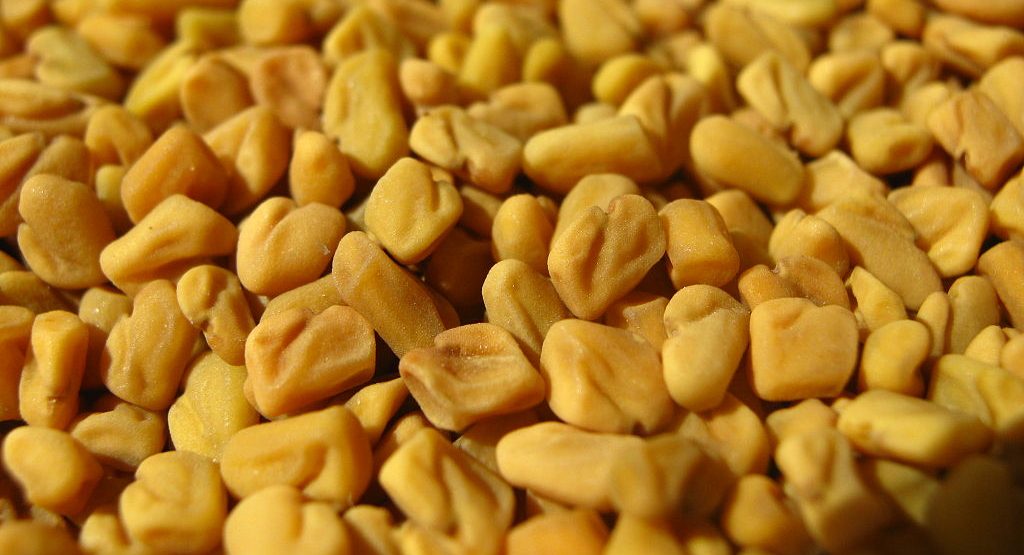
Although it lacks familiarity in the Western world, Fenugreek is one of the oldest cultivated plants in human history. Traditionally used in traditional Chinese medicine & Indian Ayurveda, this popular spice has been a staple ingredient in curry dishes and a go-to for male health.
Recent research seems to suggest that standardized Fenugreek seed extracts can reliably help improve sex drive & T levels by:
- Inhibiting the aromatase enzyme
- Blocking T conversion to DHT*
*However, while this bio-effect does technically boost “free” testosterone levels, it comes at the cost of decreased DHT levels–which is an even manlier male hormone.
Also, bear in mind that most of the positive Fenugreek studies were all conducted by Fenugreek manufacturers, thus limiting their credibility. Taking all this into account, our intuition tells us that Fenugreek is a potent libido enhancer that offers mild-to-moderate T-boosts. More on Fenugreek.
Ginseng
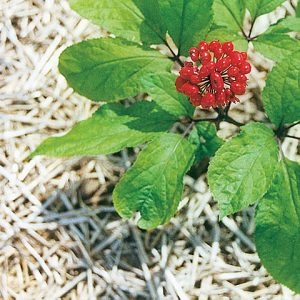
While most people consume Ginseng for its adaptogenic anti-stress benefits, one elusive study shows that it may increase measures of:
- Testosterone
- DHT
- Follicle-Stimulating Hormone
- Luteinizing Hormone (LH)
In addition, it may also decrease prolactin–a hormone which can lower testosterone in men. More on Ginseng.
Hesperidin
Hesperidin is a bioflavonoid compound found in citrus fruits. Once ingested, hesperidin metabolizes into hesperetin, a compound that might support T levels through:
- Inhibitting aromatase, the enzyme required to convert testosterone into estrogen
Although preliminary research suggests that hesperetin is one of “the most potent natural aromatase inhibitors“, so far it has only been tested in petri dish and animal studies.
While this may validate it’s use in multi-ingredient T-boosters, we’d like to see human trials that look specifically at its effects on T-levels before saying that it works.
Horny Goat Weed
The story behind Horny Goat Weed’s (HGW) discovery is all in its name:
Centuries ago, a Chinese goat herder noticed that his goats were behaving especially “horny” after consuming HGW. Soon enough, other herders & farmers began supplementing the plant, and the rest is history.
However, while its reputation is rooted in its “libido-enhancing” effects, HGW’s benefits seem to end there–with some early animal research suggesting HGW doesn’t increase T so much as “mimics” the sex hormone. In other words, HGW engages androgen receptors in cells without altering T levels.
Even so, HGW extract standardized for its primary ingredient icariin makes for a worthy addition in any T-booster stack for the compound’s demonstrated benefits on sexual health & mood. More on Horny Goat Weed.
L-Arginine
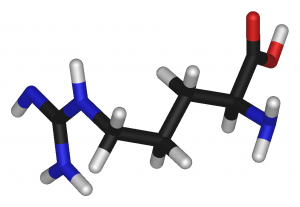
More often than not, you’re going to find this amino acid in pre-workout stacks & sex enhancers considering that vasodilation is more relevant to athletic/sexual prowess than to producing testosterone. More on L-Arginine.
L-Carnitine
L-Carnitine is an amino acid-like compound present in high quantities in protein-rich foods such as red meat. Given its ability to transport fatty acids to be burned for energy, carnitine is critically important for the body’s energy production, and is sometimes used for fat loss. Rather than boosting T directly, L-carnitine has been suggested to:
- Reduce exercise-induced stress, which may negatively impact testosterone
- Enhance the body’s response to testosterone
- Normalize sex hormones in testicular dysfunction
While this is probably not enough to warrant supplementing isolated l-carnitine, it does support its inclusion in T-boosters. More on L-Carnitine.
L-DOPA
Also referred to as levodopa, L-DOPA is a botanical compound (found in the T-booster herb Mucuna pruriens) and a natural precursor to neurotransmitter dopamine–which has been linked to feelings of pleasure and increased levels of luteinizing hormone (LH), which triggers T-synthesis in the testes. L-DOPA also appears to boost human growth hormone, another manly hormone.
Although research of isolated L-DOPA has reported mixed results, studies of Mucuna pruriens suggest that may be a potent T-booster. As such, it may be best to get your L-DOPA from a standardized Mucuna extract.
Licorice
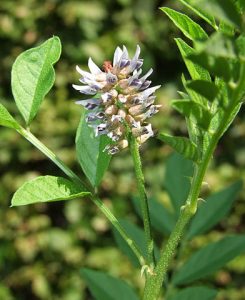
Does that mean you have to cut back on Licorice candy? Probably. Glycyrrhetic acid (or simply glycyrrhizin), the active ingredient in licorice, is what makes the herb (and candy) so sweet–and seems to be the primary offender on T levels.
At the same time however, Licorice contains multiple flavonoid compounds that might have some beneficial effects. With that in mind, men who are looking to supplement this herb should consider the Licorice Flavonoid Oil (LFO) extract that has had its glycyrrhizin content removed. Not that LFO will not necessarily increase T, but it won’t decrease T–which we’ll consider as a plus. More on Licorice.
Luteolin
An antioxidant found in fruits and vegetables, luteolin is relatively new to the T-booster scene. However, luteolin is quickly generating excitement because it may block aromatase, the enzyme needed to convert testosterone into estrogen, indirectly boosting T and helping sustain a manly testosterone : estrogen ratio.11 More on Luteolin.
Maca
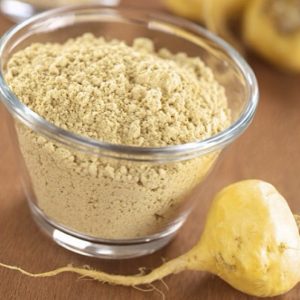
Occasionally referred to as the “Peruvian Ginseng,” Maca Root is a potent aphrodisiac with some anti-inflammatory, adaptogenic benefits that might help with T… in animals. Human research, on the other hand, suggests that Maca doesn’t do much for sex hormones, but might improve male sexual health (e.g. sperm quality) through other mechanisms.
At best, Maca might enhance or mimic the effects of sex hormones, but we need more human studies to verify this claim. Traditionally, Maca has been used by Central & South American natives for improving stress & physical performance, which more or less illustrates how it should be used by men today. More on Maca.
Magnesium
Magnesium is an important mineral for a number of reasons. To be more accurate, it’s important for 300+ reasons, due to its involvement in a wide range of bodily processes–including protein synthesis, bone health, muscle contraction, nerve conduction, and heart function. These and other activities help safeguard the body’s anabolic homeostasis, optimizing T & growth hormone levels.
In addition, magnesium is believed to increase free and total T directly by:
- Blocking SHBG hormone from binding to free-floating T
Older men in particular should look into Mg supplementation to help with decreasing Magnesium & T levels. Because mineral absorption & retention becomes harder over time, look for a premium, easy-to-absorb form like Mg Citrate to achieve optimal benefits. More on Magnesium.
Mucuna Pruriens (Velvet Bean) – Editor’s Choice
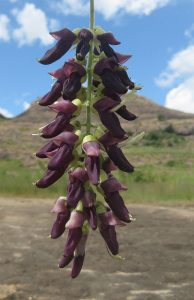
Known as “Velvet Bean” for its velvety texture, Mucuna Pruriens is a tropical herb with well-established psychoactive & fertility benefits. While most research has centered on its protection against Parkinson’s, most people supplement Mucuna Pruriens for its anti-depressant & sex-enhancing effects. For male health, Mucuna Pruriens has been shown to:
- Block prolactin & boost FSH, LH, and GH through the action of L-dopa, increasing T by up to 39% in men with low sperm count
Some variants of Mucuna Pruriens are described as being “itchy” due to having irritating hairs, which contain serotonin & mucunain. The non-itchy variants, on the other hand, can be eaten and offer a rich source of protein that becomes more bio-available when cooked. However, cooking diminishes the L-DOPA content, making Mucuna Pruriens extract the preferred choice of supplementation for boosting testosterone.
On that note, if you’re looking to increase your testosterone levels, look for Mucuna standardized to contain at least 10% L-DOPA. More on Mucuna Pruriens.
Oyster Extract
The Oyster is somewhat of a legend for its long-held reputation as a sex-enhancer and association with famous lovers such as Aphrodite, Casanova… But here’s the secret: oysters are not true sex-enhancers. At least, they don’t outright enhance sex as other libido boosters do.
Instead, the oyster might help increase low T levels, consequently increasing libido as well if that is also diminished. And it does this through a rich supply of other bona fide T-boosters, such as Zinc and D-aspartic acid.
For this reason, it may be cheaper and more efficient to simply buy a Zinc and/or DAA supplement. Although, we see no reason not to enjoy your oysters, too. More on Oyster Extract.
Red Clover
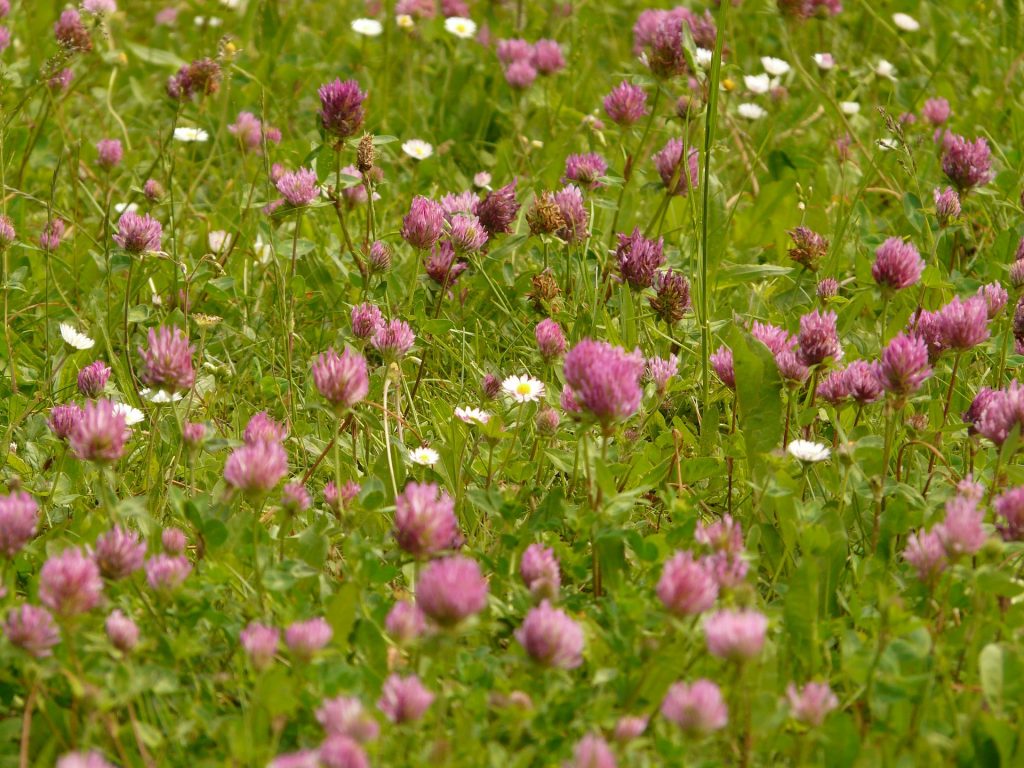
Red Clover looks like a weed, but it’s actually part of the bean family traditionally used as a food source for cattle and as medicine for treating inflammatory conditions.
Today, Red Clover is valued for its blood filtration benefits, and is best known for containing isoflavones, compounds that work as antioxidants & phytoestrogens. In terms of T, these phytoestrogens are a double-edged sword:
- On the one hand, they potentially regulate estrogen, lowering the female sex hormone to levels that don’t interfere with T levels.
- On the other hand, phytoestrogens can actually increase estrogen levels under relatively unknown triggering conditions in men.
This creates a dilemma for men who want to supplement Red Clover as an anti-estrogen when certain research seems to suggest it actually boosts estrogen (at least among post-menopausal women). Additionally, Red Clover has demonstrated inhibitory effects on 5-alpha reductase, the enzyme responsible for conversion of T to DHT. If true, this would theoretically lead to more T levels, but with the unfortunate effect of less DHT–another important male sex hormone.
Red Clover seems safe for consumption for the most part, but its effects are not yet clear enough to confidently recommend it as a T-booster. More on Red Clover.
Rhodiola
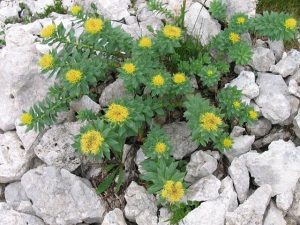
In Siberian folklore, the saying goes: “Those who drink Rhodiola tea will live more than 100 years old.” And considering its protective effects on male health & the mind, this might very well be true.
In terms of testosterone, Rhodiola seems to be more of a T-protector than a T-booster. Essentially, under stressed conditions, Rhodiola supplementation seems to prevent stress-induced “T drops” through the following bio-actions:
- Increased antioxidant capacity (i.e. decreased oxidative stress)
- Reduction of cortisol (the stress hormone)
Additionally, animal research suggests that Rhodiola might increase estrogen metabolism, in effect reducing the amount of “T-killing” estradiol–the most active form of estrogen. More on Rhodiola.
Saponins
Saponins are chemical compounds found in plants, which are known for foaming up like soap when stirred. Research suggests that saponins may have a wide variety of health benefits such as anti-inflammatory and immunostimulatory effects.
In addition, some saponins are considered “steroidal” because of their potential ability to interact with or influence testosterone and other steroid hormones. The best known steroidal saponins include:
- Furostanols present in fenugreek and tribulus herbs that might improve fertility and boost T, but research is mixed
- Ginsenosides found in ginseng, which may increase LH secretion
- Glycyrrhizin found in licorice, which may actually reduce T by inhibiting its synthesis
Ultimately however, saponins have seen little research, and the most promising studies are biased due to being funded by supplement companies. As such, it’s far too early to tell if saponins really do anything worthwhile, and in the case of glycyrrhizin, it’s best to avoid it entirely.
Saw Palmetto
Saw palmetto (Serenoa repens) is a short palm tree native to the Southeastern United States. The fruit of saw plametto contains fatty acids and phytosterols used to make an extract that is particularly popular for treating benign prostatic hyperplasia (BPH), reduced sex drive, and hair loss – issues that are particularly common in aging men.
These uses certainly suggest some link to testosterone, and it has been suggested that saw palmetto may work by suppressing 5-alpha-reductase, an enzyme needed to convert testosterone into DHT. But despite this potential effect on T, research evidence of these effects is conflicting at best. And even if it does work, a drop in DHT levels in favor of testosterone might only be worth it for older men.
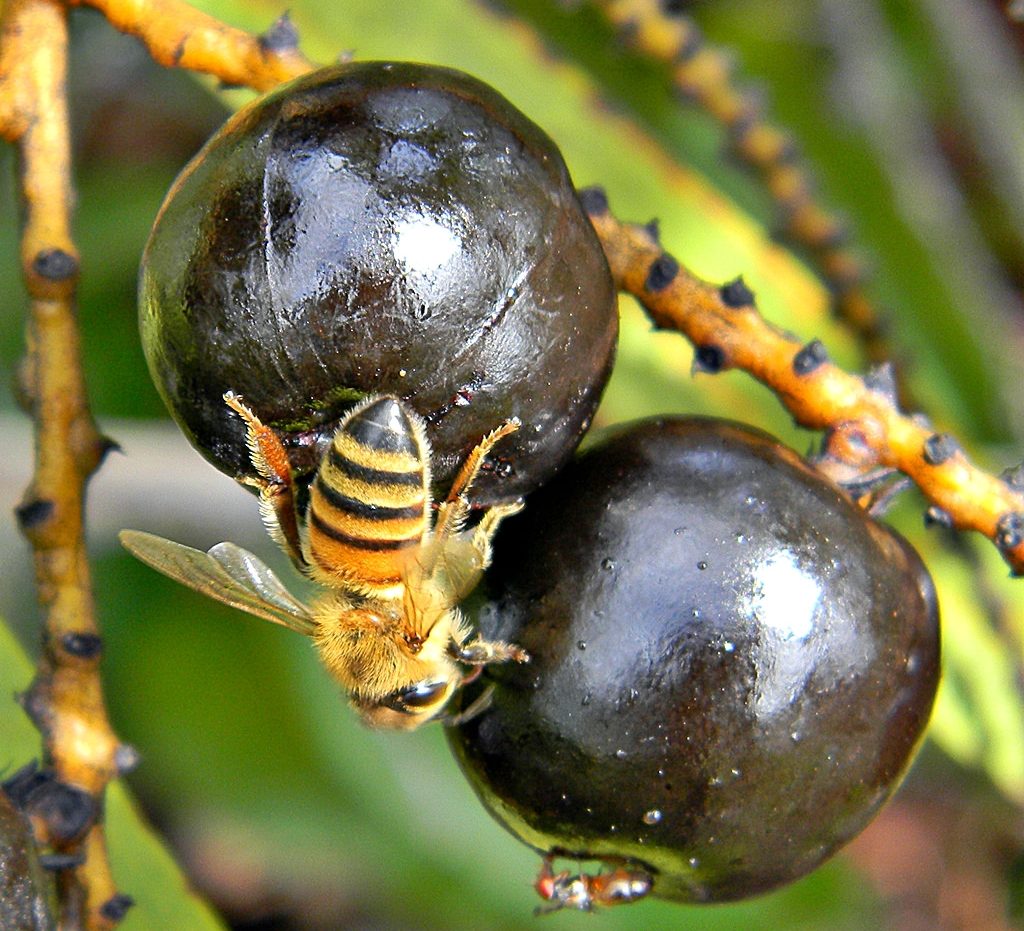
Stinging Nettle – Editor’s Choice
This traditional herb has been used for thousands of years for everything from making rope to helping with asthma. Today, stinging nettle is popularly used to support prostate health, urinary comfort and sexual function. Stinging Nettle has been suggested to work via three mechanisms that may support healthy testosterone levels:
- Inhibition of aromatase
- Inhibition of 5a-reductase
- Blocking SHBG
But while researchers have found evidence of these effects, there are currently no human trials showing a direct effect of stinging nettle on T. So while it may be great for supporting prostrate health in older men, there’s currently no proof that it raises T. More on Stinging Nettle.
Tongkat Ali
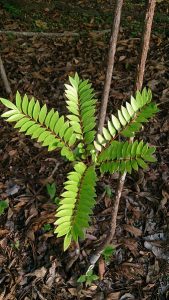
- Blocking SHBG
- Increasing DHEA (T precursor) levels
- Decreasing cortisol
- Inhibitting aromatase
Combined, these effects may help boost low T levels. For example, one small study reported a 37% T increase in older men, while another study in sub-fertile men reported a 65% increase in sperm count. When supplementing Tongkat Ali look for a 100:1 extract. More on Tongkat Ali.
Tribulus terrestris
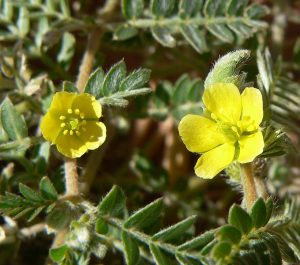
However, research evidence of tribulus as a T-booster remains mixed. While some studies report that tribulus may improve sexual function and possibly even T levels in individuals with low T or sperm count, it has been shown to have no effect on T in healthy men.
As the case with many herbs proclaimed to boost testosterone, it looks like tribulus might only do so in deficient individuals, or that it may improve sexual function without influencing T at all. As such, it’s best seen as a libido booster. More on Tribulus terrestris.
Vitamin B6 – Editor’s Choice
Vitamin B6 is involved in a large variety of enzyme reactions. It may potentially interact with testosterone in two ways:
- Aiding the function of cell receptors that bind to T
- Participating in T synthesis, since restricting dietary B6 intake has been shown to decrease T levels in rats
So while B6 is not really a T-booster, getting enough B6 from your diet seems to be required for healthy testosterone levels. More on vitamin B6.
Vitamin B12
It’s not that we have anything against B12. It’s just annoying that some T-Booster supplement formulators insist on using it even though it has nothing to do with testosterone. B12 plays a key role in energy metabolism, and may bring a little boost in vitality if you’re an older man.
But B12 does nothing for T. Nothing. We don’t see why any test stack would ever include this B-Vitamin. More on B12.
Vitamin D
Some people fail to get enough of of this essential “sunshine vitamin”, which is a shame because multiple studies have linked higher vitamin D levels to higher testosterone. While it’s not entirely clear how vitamin D supports testosterone, we do know that vitamin D receptors and enzymes are present in the testes and Leydig cells that produce testosterone.
Furthermore, a recent study in overweight men reported that vitamin D supplementation resulted in a significant increase of total, bioactive, and free testosterone.
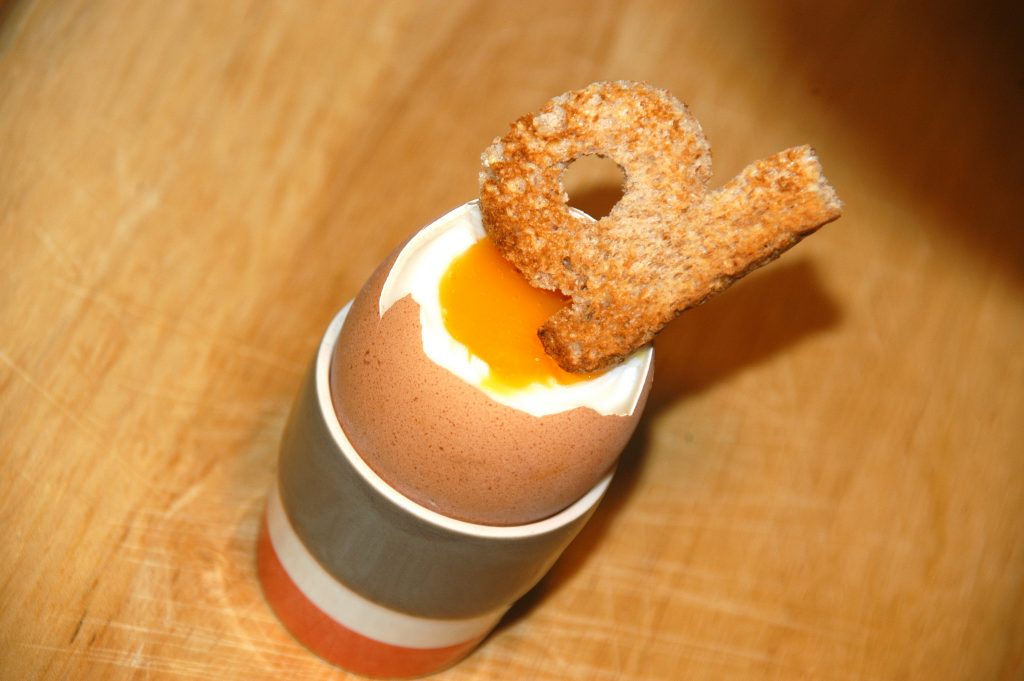
Vitamin K
Known for keeping calcium in the bones and out of the bloodstream, this essential vitamin is also found in the testes where it may be involved in T synthesis. Vitamin K has two forms: K1 and K2, with the latter being the preferred form for testosterone boosting. Animal studies of Vitamin K have demonstrated that:
- Vitamin K deficiency reduces the activity of genes involved in steroid hormone synthesis
- Supplementing vitamin K2 (as MK-4) significantly increased T levels in healthy rats
But despite these positive findings, human research of the link between vitamin K and testosterone is scarce. As such, it’s impossible to tell if these effects translate over to humans.
Zinc – Editor’s Choice
If there’s one mineral that can directly affect testosterone, it’s this. Zinc is THE manliest mineral available. Why? Because it’s raw material for T production.
Indeed, low zinc levels have been associated with a slew of hormonal issues, including hypogonadism, man-boobs, and muscle loss. Zinc is suggested to support testosterone via three main mechanisms:
- Helping trigger T-synthesis
- Serving as raw material for T
- Neutralizing prolactin
Zinc supplementation is particularly useful for men with low testosterone or zinc deficiency. In addition, athletes undergoing chronic high-intensity exercise might experience a rise in T and improvement of performance from zinc.
Adequate Zinc levels can be achieved through the diet, but Zinc is a commonly deficient mineral, especially among older men. If you feel you have low Zinc levels, try supplementing Zinc Citrate, the best form of Zinc (aside from Zinc Picolinate, which is better, but more expensive).
Dosage Note: Zinc is awesome, but taking too much can cause side effects; you shouldn’t go above 40 – 50 mg daily. More on Zinc.
